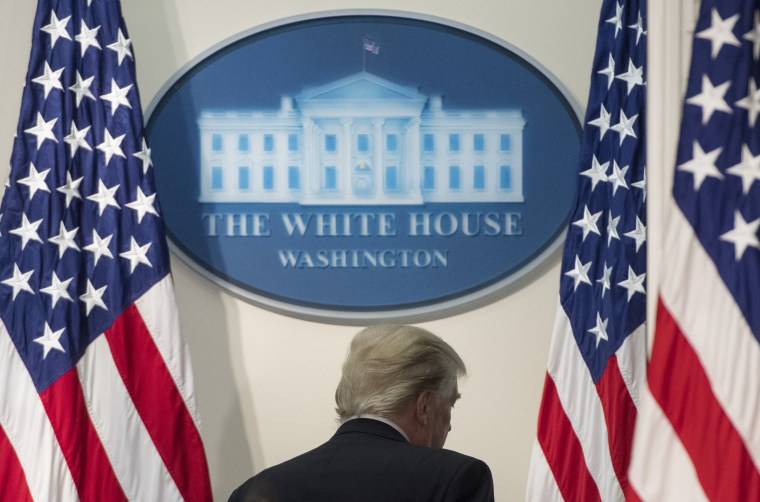For much of his presidency, Donald Trump has seemed preoccupied with whether he was personally under investigation -- and telling people that he wasn't. In November 2017, for example, he declared, "As far as I'm concerned, I haven't been told that we're under investigation, I'm not under investigation."
The phrasing remains entertaining -- as far as Trump is "concerned," all kinds of fictional claims may seem true -- but it was part of a series of related comments. As recently as August 2018, the president told the Wall Street Journal, "Of course they say it's not an investigation. You know, in theory I'm not under investigation."
I'm still not sure what any of that was supposed to mean, exactly, but reading Special Counsel Robert Mueller's report, there can be no doubt that Trump became only the third sitting president to face a criminal investigation while in office. From the document:
Although the series of events we investigated involved discrete acts, the overall pattern of the President's conduct towards the investigations can shed light on the nature of the President's acts and the inferences that can be drawn about his intent. In particular, the actions we investigated can be divided into two phases, reflecting a possible shift in the President's motivesThe first phase covered the period from the President's first interactions with Comey through the President's firing of Comey. During that time, the President had been repeatedly told he was not personally under investigation. Soon after the firing of Comey and the appointment of the Special Counsel, however, the President became aware that his own conduct was being investigated in an obstruction-of-justice inquiry.At that point, the President engaged in a second phase of conduct, involving public attacks on the investigation, non-public efforts to control it, and efforts in both public and private to encourage witnesses not to cooperate with the investigation.
All of this is clearly quite relevant to the obstruction allegations -- when a sitting president encourages witnesses not to cooperate with an investigation in which he's the subject, there's a problem -- though it's also worth acknowledging that when Trump told the public he wasn't under investigation, he was lying.
In fact, there's a degree of irony to the circumstances. Earlier in the Mueller report, the document concluded that "substantial evidence indicates" that the catalyst of the president firing then-FBI Director James Comey was "Comey's unwillingness to publicly state that the president was not personally under investigation, despite the president's repeated requests that Comey make such an announcement."
In other words, Trump told the FBI director to tell the public he wasn't under investigation. Comey balked, which led the president to fire him, and soon after, Trump found himself under investigation -- a point he repeatedly lied about.
Had Trump not pressured and fired Comey, all of this likely would have unfolded in a very different way.
It's entirely possible the president will soon tell supporters that he was never under investigation, but the Mueller report makes it clear that he was, it was his fault, and he took a series of misguided steps to undermine the probe while it was ongoing.
